Tuesday, October 14, 1997
"Standing Stone" world premiere
Concert • By Paul McCartney • Part of the Standing Stone
Last updated on July 7, 2020
Tuesday, October 14, 1997
Concert • By Paul McCartney • Part of the Standing Stone
Last updated on July 7, 2020
Location: Royal Albert Hall
Previous concert Sep 15, 1997 • Music For Montserrat
Article Oct 10, 1997 • "Tropic Island Hum" released in theatres
Interview Oct 12, 1997 • Paul McCartney interview for BBC Radio 2
Concert Oct 14, 1997 • "Standing Stone" world premiere
Article Oct 16, 1997 • Signing session at HMV London
Film Oct 28 & Nov 04, 1997 • Shooting of "Beautiful Night" promo film
Next concert Mar 15, 1999 • Rock And Roll Hall Of Fame
From Reuters:
LONDON, Oct 15(Reuters) – Paul McCartney, the former Beatle who can neither read or write music, won a standing ovation Tuesday for the world premiere of his first solo classical music symphony.
London’s Royal Albert Hall echoed to screams of delight and cries of “We love you, Paul” reminiscent of the Beatles’ heyday in the 1960s as the London Symphony Orchestra and choir played the last notes of McCartney’s symphonic poem “Standing Stone.”
The 75-minute-long work, which took four years to write, was McCartney’s most ambitious foray yet into classical music.
It was written on a keyboard linked up to a computer program to overcome McCartney’s legendary inability to write down the music which has made him one of the 20th century’s most successful singer-songwriters.
McCartney’s wife Linda accompanied him to the world premiere, making her first public outing since suffering from breast cancer 18 months ago.
McCartney was called back to the stage six times by cheering crowds, who have already put the symphony at the top of the U.S. classical music charts and at number two in the British classical charts.
“I’ve loved the stretch of writing ‘Standing Stone’,” McCartney told a news conference before the performance. “It’s exciting for me to work in a different musical field, although I really see no barriers in music and I still love my rock and roll.”
The symphony, commissioned to mark the centenary of McCartney’s EMI record label, follows his 1991 Liverpool Oratorio, which was written in conjunction with British conductor Carl Davis.
The Liverpool Oratorio was slammed by the critics as lightweight, but it proved popular with audiences and has been performed more than 100 times in 20 countries.
“Standing Stone” looks likely to follow the same pattern. Some classical music critics have already dismissed it as “background music.”
Hilary French, writing in the Times, called it “a sad monument; it is tired, it is middle-aged.”
Rock music critic Andrew Smith said the symphony had a “few pretty tunes, but lacks a spine, an overriding vision.”
But McCartney appeared unperturbed by the critics and cheerfully admits to having a scant classical musical background.
“I don’t know much about classical music at all. When I was a kid, my dad always used to turn it off when it came on the radio,” said 55-year-old McCartney.
“I am quite lucky. It’s like a big black hole in there with me when I sit down…Sometimes it is a bit of an Advantage to not know much. Ignorance is bliss in my case,” he added.
McCartney says the symphony represents an evolution rather than a break with his pop past, recalling how the Beatles distinguished themselves from other 1960s bands by using a trumpet descant on “Penny Lane” or a string quartet on “Eleanor Rigby.”
“Throughout my musical career, rather than staying in one place I’ve moved from one stepping stone to another,” he said.
Knighted by Queen Elizabeth this year for his services to the pop music industry, the title “Sir Paul” makes unpretentious McCartney feel uncomfortable.
“I am highly honoured but I am very proud of the title ‘Mr’. It is working class…it reminds me of who I am and where I am from,” he said.
“Standing Stone” was conducted by Lawrence Foster with ticket sales from the charity premiere going to the Music Sound Foundation, which aims to assist and encourage young people’s interest in music.
The work is due to be performed again at the Carnegie Hall in New York in November.
From Club Sandwich N°84, Winter 1997:
Paul McCartney’s Standing Stone was launched with a resounding fanfare in London. Mark Lewisohn reflects on the latest twist in a pioneering musical journey
Two recording engineers who worked with the Beatles 30 years ago once gave me specific recollections that remain relevant today when considering the music of Paul McCartney.
“There’s one thing they always used to say,” one told me. ‘”There’s no such word as can’t’. ‘What do you mean can’t?’ The word just wasn’t in their vocabulary. There was always a way around any problem. If they had an idea – any idea – they thought it must be possible to do it.”
“The Beatles were always very opportunistic and very positive,” remembered another. “At one point we accidentally made a curious sound on the tape and they not only wanted to keep it on the recording but also asked us to deliberately repeat that same sound again. Other groups would have been annoyed but the Beatles capitalised on the mistake.”
Sitting in an empty Royal Albert Hall a few hours ahead of the premiere, it was clear that Paul’s philosophy hasn’t altered one iota. Speaking in hushed tones as the Brodsky Quartet briskly rehearsed their performance of ‘Inebriation’, Paul explained how someone once told him that the viola and cello rarely feature prominently in the work of a string quartet, and that it’s unseemly for a composer to write just for these two instruments, excluding the violins. So Paul went out of his way to do just that. Who says you can’t?
It’s the same principle that has stood Paul in great stead for some 35 years. The same principle that encouraged Paul and John to tell George Martin in 1962 “I know for the first single we’re supposed to record what you tell us to do, but we want to cut one of our own songs instead.” The same principle that led to all of the Beatles’ and Paul’s many “firsts” over the years. If you follow your instincts you’ll be a revolutionary and do things on your own terms. Naturally, not everything is going to fire – hence Paul’s quote in the last CS, “This, for all its faults, is mine. So, win or lose, I get the blame” – but it’s true too, as Paul also pointed out, that if he follows a text book then his work will be shaped by the author of that book, whereas if he follows his instincts, he has an original angle.
That Standing Stone is an “original angle” is beyond question. Paul McCartney’s Liverpool Oratorio, unveiled six years ago, was jointly composed with Carl Davis. Standing Stone is Paul’s and Paul’s alone and the place of a Carl Davis has been taken by a computer. Don’t misunderstand this – all of the music, and the remarkably melodic final movement ‘Celebration’, came out of Paul’s head and nowhere else. But the computer was used to notate his composition and simultaneously score and sound it for orchestral instruments. And when the computer software – programmed, of course, by human hand – added notes Paul that was attempting to erase, the resulting “tone clusters” so intrigued the composer that he started to intentionally subvert the computer process in order to make more. “I started to enjoy some of the ‘mistakes’,” Paul admits, “realising that if I had thought them up then I would have rejected them. Since they happened by accident and sounded strong, I thought it would be an interesting way to write. I put in anything that was atonal, anything that was disturbing, but my natural inclination made sure I underpinned it all with a melody.”
You don’t need to be a musical genius to realise that Standing Stone is the least simplistic piece of work Paul has ever composed. This, inevitably, makes it harder to latch on to. It has no soloists, no songs, just what Paul calls “colours and effects”. To be sure, Paul knew what he was doing, by ear, as he composed the 75 minute extravaganza, but if it happened to include any of those famous pandiatonic clusters, then we’re back to the happy accidents syndrome once again. Because of its occasional atonality, reaction has been mixed, with some excellent notices and others less than kind, a fact predicted by Paul. But he stands by his work – and so he should. Did Beethoven and Stravinsky attract universally great reviews when their music was new? It’s easy to carp, less easy to do.
And certainly the premiere performance was a fabulous success. The Royal Albert Hall was full to its 5300 capacity. Paul and Linda sat among family and friends, and Paul took to the stage at the end to congratulate the Standing Stone conductor Lawrence Foster and receive the audience’s warm, fulsome delight. As “flutter fetti” -thousands of specially printed tiny slips of paper – cascaded down from the roof of the grand old building, Paul was urged back to the stage no fewer than six times by the wildly appreciative audience.
Standing Stone is the latest and perhaps least predictable landmark in a life-long musical journey packed with unobvious moves. Rejecting a suggestion in the pre-concert press conference that it marked a permanent switch from rock music to classical, Paul was quick to remind a journalist that only a month earlier he was on this same Albert Hall stage rocking out to ‘Kansas City’. And don’t go calling it classical either, it’s “contemporary orchestral music”, he might have added, as he did a few days earlier in a BBC radio interview.
The world famous Grand National horse race takes place every year in Liverpool. So it’s appropriate, really, that the city’s most famous son should be the greatest fence jumper of them all.
Mark Lewisohn
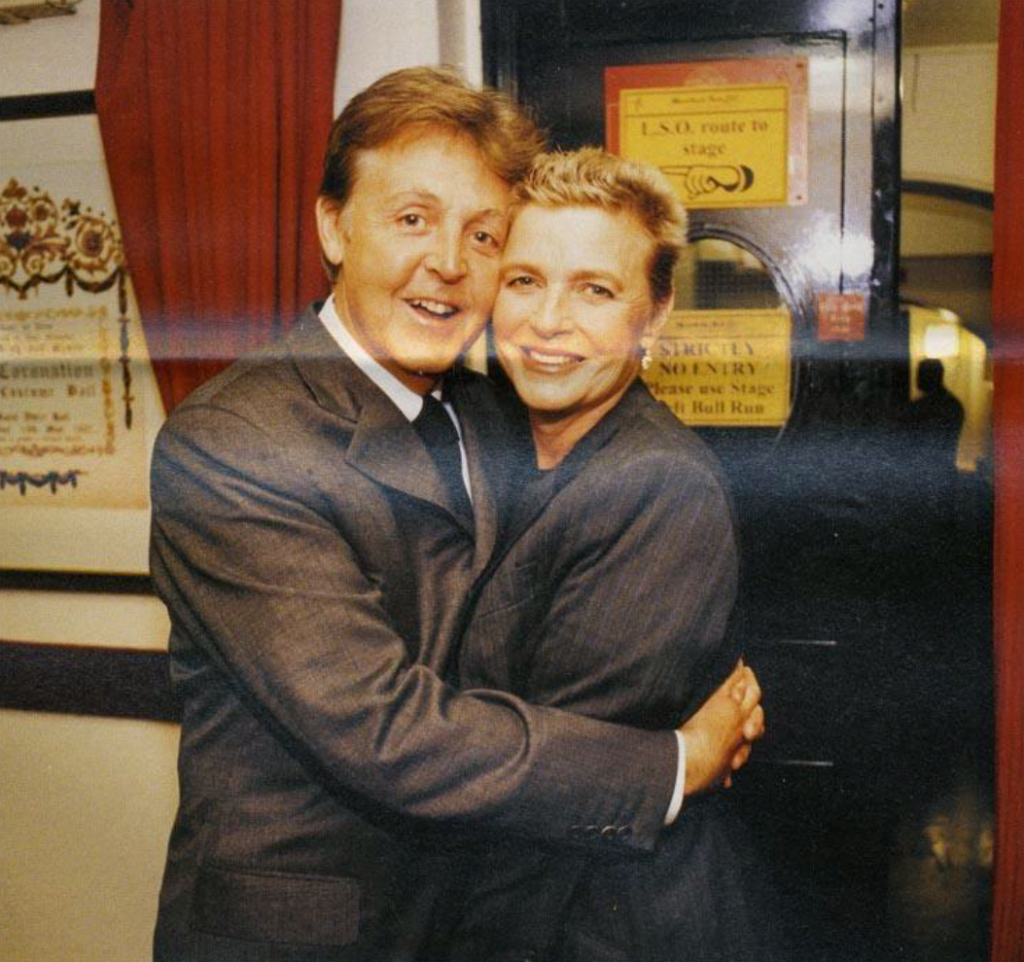
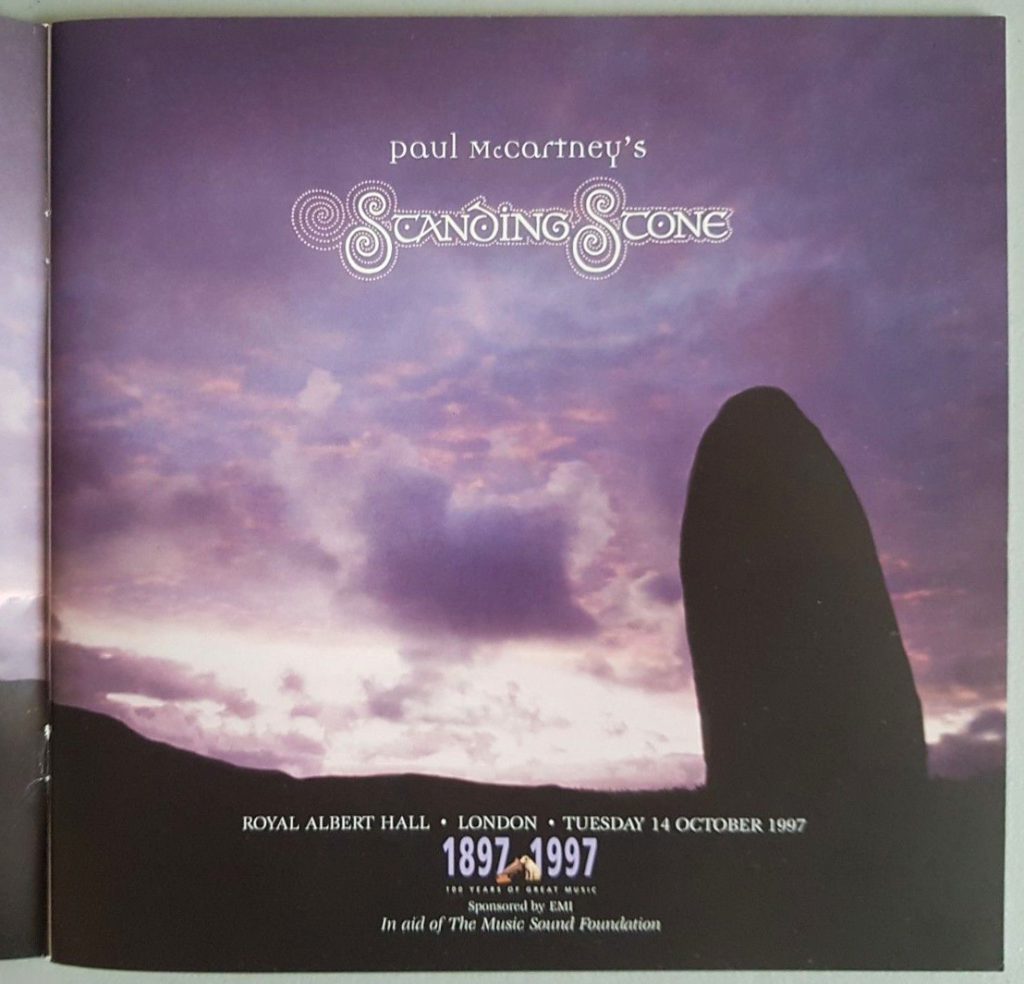
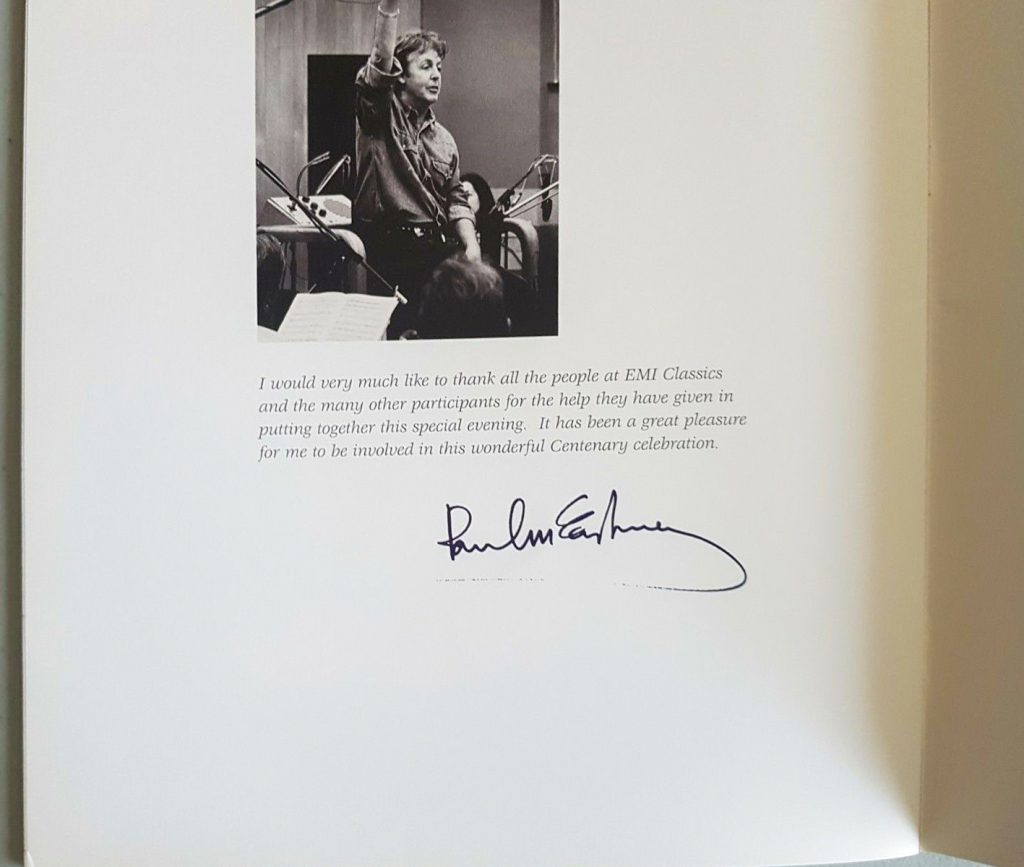
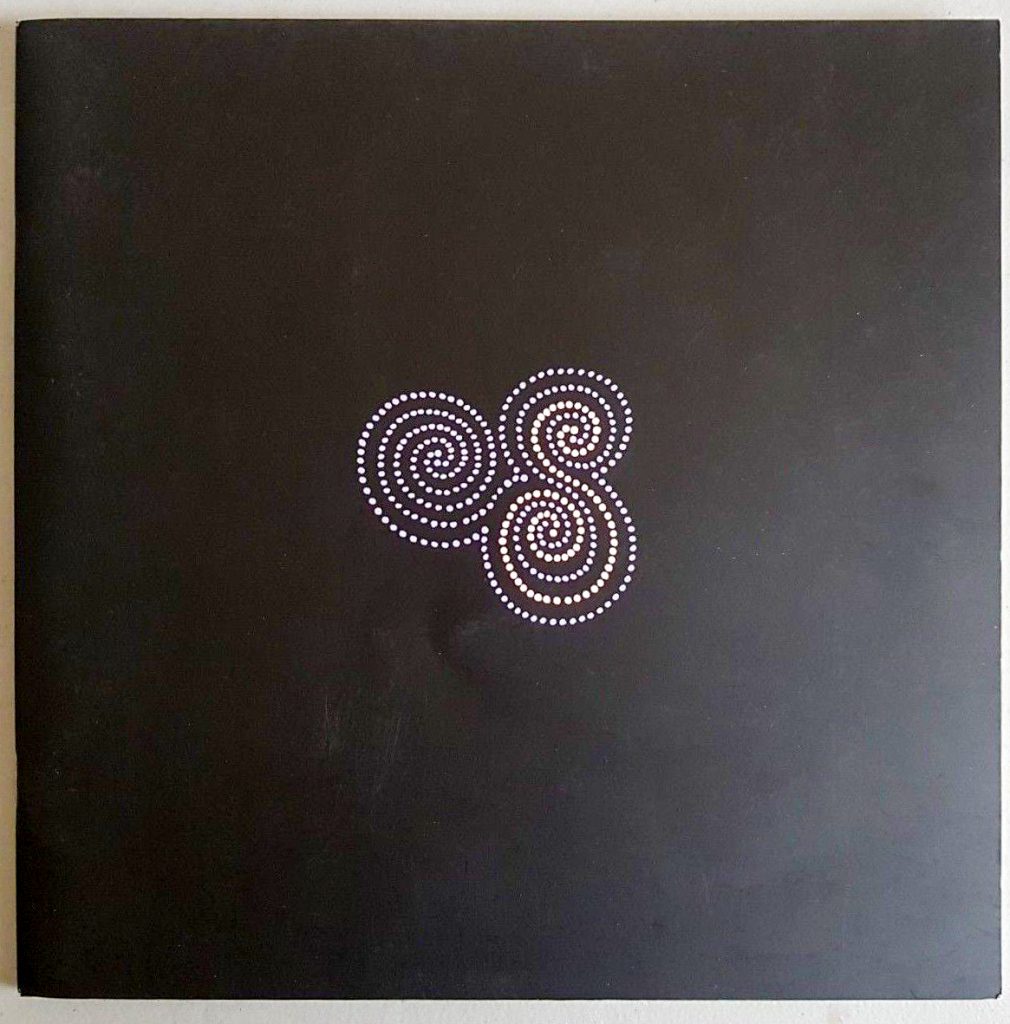
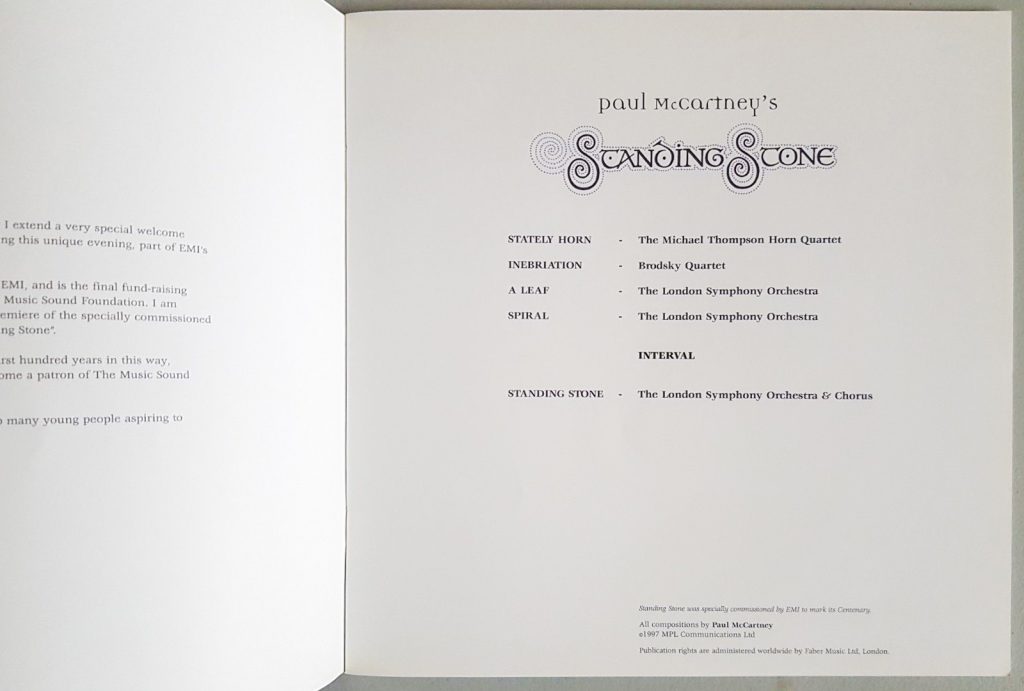
This was the 6th concert played at Royal Albert Hall.
A total of 11 concerts have been played there • 1963 • Apr 18th • Apr 18th • Sep 15th • 1995 • Oct 16th • 1997 • Sep 15th • Oct 14th • 1999 • Apr 10th • 2002 • Nov 29th • 2006 • Nov 3rd • 2009 • Nov 12th • 2012 • Mar 29th
Written by Paul McCartney
Performed by : The Michael Thompson Horn Quartet
Album Available on MoMac's Hidden Tracks Vol.25
Written by Paul McCartney
Performed by : The Brodsky Quartet
Album Available on MoMac's Hidden Tracks Vol.25
Movement I - After Heavy Light Years
Movement II - He Awoke Startled
Movement III - Subtle Colours Merged Soft Contours
Movement IV - Strings Pluck, Horns Blow, Drums Beat

Notice any inaccuracies on this page? Have additional insights or ideas for new content? Or just want to share your thoughts? We value your feedback! Please use the form below to get in touch with us.